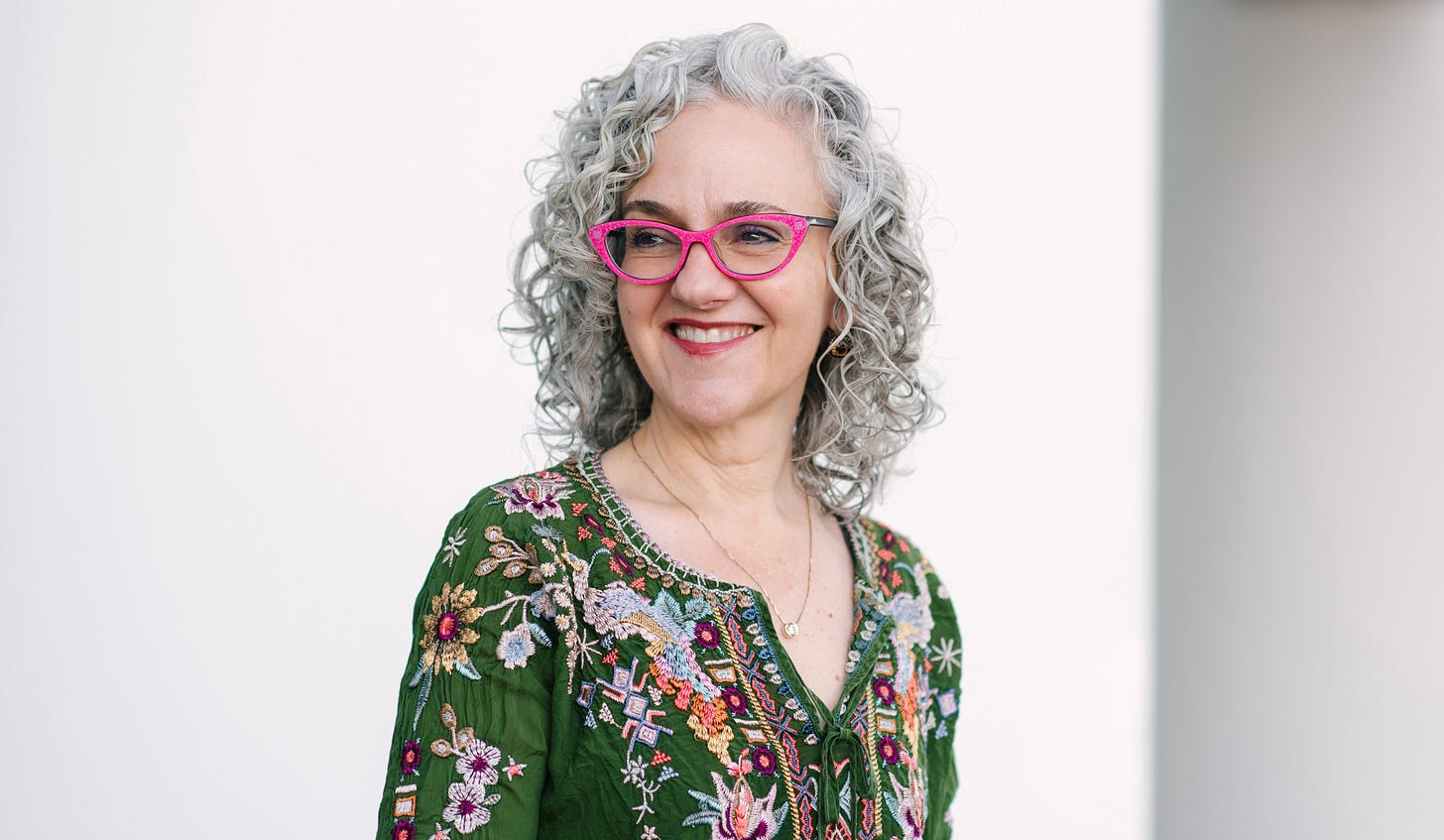Questions, answers, fairytales and Jung
On reading to make sense of the world, sourdough as a practice and Jung - meet psychoanalyst and author Lisa Marchiano.
After our last episode where we read Butter through a psychoanalytic lens, I thought it would be interesting to continue the exploration of reading from this perspective. Years ago, when I was considering further training to become a psychoanalyst and seeing a Jungian psychoanalyst, I found the podcast This Jungian Life. Three Jungian analysts have a weekly conversation about life and the psyche. It deepened my understanding of the ways we see the world — both consciously and unconsciously — and definitely played a role in leading me further towards an analytic way of working.
I was thrilled when Lisa Marchiano, one of the presenters, said yes to my request for an interview for us. Not only is she a psychoanalyst and podcaster, she is also an author. Her first book, Motherhood, was published in 2021 and is an exploration of the momentous changes and transitions that take place in a woman’s mind when she becomes a mother. Using fairytales, myths and fables to make sense of the lived experience from pregnancy to raising a child to adulthood, this book is so helpful in understanding the complexities of parenthood. It’s on my website bookshelf page along with other favourite psychotherapy book recommendations. Her second book, The Vital Spark, was published this year and Lisa talks about it below.
The use of literature and stories to help make sense of the human condition is a subject very close to my heart. It’s how I have always made sense of the world and the quickest way to open my mind and feed my curiosity. To whet your appetite for this Jungian psychoanalytic exploration, here is an episode where Lisa explores Beauty and the Beast and another on the Ugly Duckling Complex.
I hope you enjoy this slightly different Q&A. As always, Sophie and I would love to hear your thoughts! Don’t forget, if you want a reading and eating prescription, send us a quick message and we will answer it in coming newsletters. In the meantime, enjoy this dip into the world of fairytales, making sourdough and the psyche.
Germaine & Sophie
Q: How does reading help you make sense of your inner world?
It’s always been the case that, when I need to understand something, I go to a book. Whether I’m trying to come to terms with deep anguish over an important loss, become a better therapist, or learn how to bake sourdough, books are the first place I go to for answers. So when I’ve felt the need to make sense of my inner world, I’ve been drawn to authors who offer wisdom and depth. I grew up knowing who Jung was because my mother loved him and read the Collected Works, but I discovered him for myself during the 1990’s. That was a time of a Jungian renaissance in publishing. The books of Robert Johson, James Hillman, Thomas Moore, Jean Shinoda Bolen, Linda Leonard, and Clarissa Pinkola Estes were bestsellers. I found these books as I was struggling to understand where I fit in and what I was called to do. They were tremendously helpful. I’ve always known that I wanted to be a writer, but when I discovered these books, I knew I wanted to write something that helped others the way these books had helped me.
Keep reading with a 7-day free trial
Subscribe to Something to Eat and Something to Read to keep reading this post and get 7 days of free access to the full post archives.


